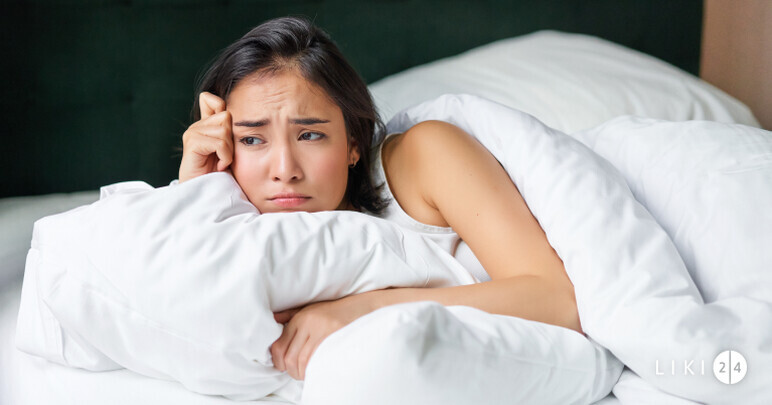En cas de stress, le corps libère des hormones qui déclenchent la "lutte ou fuite" réaction. Le stress peut aussi avoir ses bons côtés, car il nous aide à nous mobiliser et à réagir lorsqu'un danger réel nous menace ou lorsque nous devons accomplir certaines tâches. Cependant, dans certaines situations, le stress persiste pendant une période prolongée et est appelé stress chronique, qui affecte la santé physique et mentale.
Types de stress
Il existe deux formes principales de stress : le stress aigu et le stress chronique.
La détresse aiguë survient dans les minutes ou les heures qui suivent un événement. Elle ne dure que peu de temps et est très intense. Elle peut survenir après un événement difficile ou inattendu - comme un deuil soudain ou un accident.
Le stress chronique dure longtemps ou revient sans cesse. Si nous sommes constamment stressés, l'état de combat ou de fuite reste activé et une sécrétion excessive d'hormones de stress comme le cortisol se produit.
Symptômes - signes que vous souffrez de stress
L'AVC peut provoquer différents types de symptômes, à savoir:
- Symptômes émotionnels - anxiété, irritabilité, sautes d'humeur, attaques de panique, dépression, tristesse, soucis excessifs, etc;
- Symptômes comportementaux- tendance à consommer de l'alcool ou à fumer, consommation excessive d'aliments, tendance à l'isolement social, etc;
- Symptômes physiques- maux de tête, douleurs dans la poitrine, insomnie, épuisement, vertiges, tremblements, forte transpiration, diarrhée, hypertension, manque d'énergie, grincements de dents, palpitations, tensions musculaires, problèmes digestifs, système immunitaire affaibli, etc;
- symptômes cognitifs- problèmes de concentration, de mémoire, etc.
Le stress : qu'est-ce qui le provoque et qu'est-ce qui nous stresse?
De nombreuses choses peuvent être source de stress : la perte d'un être cher, une séparation, la perte d'un emploi ou des problèmes financiers. Les causes peuvent également inclure certaines affections physiques, notamment les maladies chroniques, le manque de conciliation entre vie professionnelle et vie privée, le manque de soutien social, etc. Parfois, le stress interne peut être causé par l'anxiété, la dépression ou l'autocritique.
Traitement du stress
Le traitement du stress implique de se concentrer sur la modification de la perception de la situation, le développement des capacités d'adaptation, l'utilisation de techniques de relaxation et le traitement des symptômes ou des maladies qui peuvent être causés par un stress chronique.
Parmi les mesures qui peuvent être utiles, on trouve la psychothérapie, y compris la thérapie cognitivo-comportementale et les techniques basées sur la pleine conscience, certains Médicaments contre le stress et compléments alimentaires ainsi que les médecines complémentaires et alternatives (aromathérapie, massage, yoga, méditation, etc.). N'oubliez pas que les principaux médicaments contre le stress ne peuvent être administrés que sur prescription médicale.
Comment pouvons-nous gérer le stress?
La manière dont nous gérons les événements stressants de la vie et dont nous réagissons au stress - la gestion du stress - est d'une grande importance. Que le stress vienne de l'intérieur ou de l'extérieur, les techniques de relaxation peuvent aider à gérer le stress. Il existe de nombreuses techniques différentes et il est important de trouver celles qui fonctionnent pour chacun d'entre nous. La respiration profonde, la relaxation musculaire progressive, la méditation, le yoga et l'exercice physique en sont des exemples. Cependant, d'autres méthodes de traitement du stress sévère, recommandées par votre médecin, sont parfois nécessaires.
Voici quelques recommandations :
- adopter un style de vie actif ;
- Passer du temps dans la nature;
- apprendre à gérer son temps de manière efficace et trouver un équilibre entre vie professionnelle et vie privée;
- savoir se nourrir sainement;
- trouver un rythme de sommeil optimal et sain;
- de réduire le temps passé devant les écrans ou sur les réseaux sociaux; de réduire le temps passé devant les écrans et sur les réseaux sociaux
- Soignez vos relations sociales, passez du temps avec vos proches et parlez de ce qui vous pèse;
- Poser des limites saines dans les relations et apprendre à dire "non";
- Pratiquer l'autosoins - promenades dans la nature, bains relaxants, massages, pratiquer un hobby, aromathérapie, etc.
L'exposition à certains arômes par le biais de bougies ou d'huiles essentielles - Aromathérapie - peut avoir un effet extrêmement apaisant. Parmi les senteurs relaxantes, on trouve la lavande, la rose, la bergamote, la camomille, le néroli, l'encens, le bois de santal, l'ylang-ylang, la fleur d'oranger, etc. Vous pouvez ainsi choisir l'huile essentielle de lavande Solaris, l'huile essentielle d'ylang-ylang Sabio ou même un mélange d'huiles essentielles anti-stress SoiL.
Préparations anti-stress
Plusieurs vitamines et minéraux jouent un rôle important dans la réaction de l'organisme au stress et dans la régulation de l'humeur. Certaines carences nutritionnelles peuvent nuire à la santé mentale et à la capacité de gérer le stress. C'est pourquoi certains compléments alimentaires et vitamines peuvent contribuer à améliorer l'humeur en cas de fatigue et de stress.
Le magnésium pour réduire le stress
Certains types de compléments alimentaires peuvent être utiles dans le traitement des nerfs et du stress. Un exemple serait Magnésium. Ce minéral joue un rôle important dans la réaction de l'organisme au stress. Le magnésium est impliqué dans la santé du système nerveux et une carence en magnésium affecte l'axe surrénales-hypothalamo-hypophysaire, connu pour être impliqué dans le développement de l'anxiété. Les suppléments de magnésium peuvent ainsi soulager le stress et sont généralement utiles en combinaison avec la vitamine B6 - magnésium B6./i>, Equilibra ou Magnésium 400 Dépôt contre le stress et la fatigue.
Extrait naturel anti-stress
D'autres compléments alimentaires naturels, par exemple à base de rhodiola, d'ashwagandha, de L-théanine, de mélisse ou de valériane, peuvent également aider à réduire le stress :
- Rhodiola est un remède anti-stress bien connu qui contribue à prévenir le stress chronique et ses complications. Les propriétés adaptogènes de cette plante sont dues à deux puissants composants actifs de la plante : La rosavine et le salidrozide. Elle est généralement disponible sous forme de gélules, d'extrait liquide ou de poudre.
- Ashwagandha, une herbe ayurvédique adaptogène, est utilisée depuis longtemps pour soulager l'anxiété. Elle peut être prise sous forme de pilules, de gélules ou d'extrait en poudre.
- Mélisse ou romarin peut aider à soulager l'anxiété, le stress et les sentiments d'agitation et de tension. Il favorise la relaxation et améliore l'équilibre général du corps.
- Valerian est une autre herbe connue pour ses effets calmants et souvent utilisée comme complément alimentaire en cas de stress, d'insomnie, d'anxiété et d'autres troubles, y compris la dépression.
- GABA ou acide gamma-aminobutyrique est un neurotransmetteur qui peut induire la relaxation et favoriser le sommeil. En d'autres termes, c'est un produit chimique qui a un effet calmant sur le cerveau et le corps.
Quand il s'agit de pilules anti-stress, qu'elles contiennent des minéraux, des vitamines ou des extraits naturels, choisissez le produit qui vous convient en fonction de vos besoins et des instructions de votre médecin. Vous pouvez choisir parmi une grande variété de produits, de Nervocalmin Relaxation à base de valériane et de passiflore à b>Soriso avec Nervocalmin Relaxation à la valériane et à la passiflore.
Soriso avec rhodiola et extrait de basilic pour Stresclin Complex avec extrait de Withania somnifera pour réduire le stress.
De nombreuses tisanes peuvent également avoir un effet positif sur le stress, soulager l'anxiété et améliorer le sommeil - Tisanes anti-stress et relaxantes - Tisane de camomille, de tilleul, de lavande, ainsi que certains mélanges spéciaux comme Relaxing Tea et Distonoplant Tea de Fares ou Antistress Tea d'Alevia.
Il existe de nombreux préparations anti-stress qui peuvent aider. N'oubliez cependant pas que les compléments alimentaires, quels qu'ils soient, et les médicaments ne doivent être pris que s'ils ont été prescrits par un médecin. De plus, les compléments alimentaires ne s'attaquent généralement pas à la cause réelle du stress, à moins qu'il ne s'agisse d'une carence en nutriments. Il est important de faire la distinction entre le traitement des symptômes du stress et la lutte contre la cause.



 Bien-être
Bien-être  Fitness
Fitness  Nutrition
Nutrition  Beauté
Beauté  Bien-être
Bien-être  201 vues
201 vues 

















 Article précédent
Article précédent 







